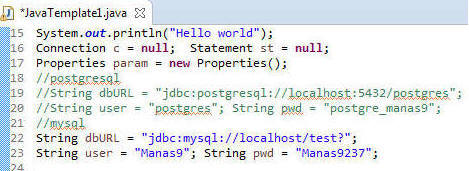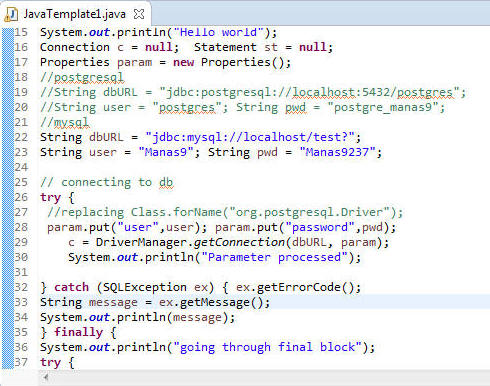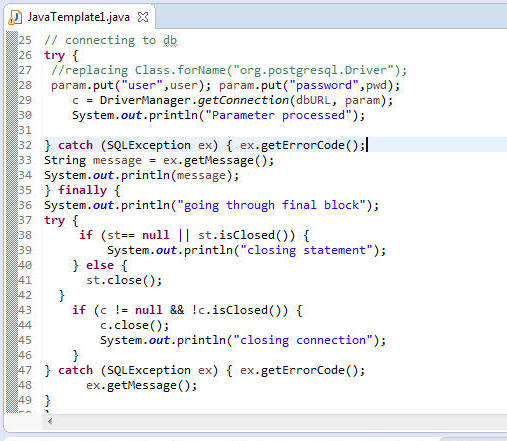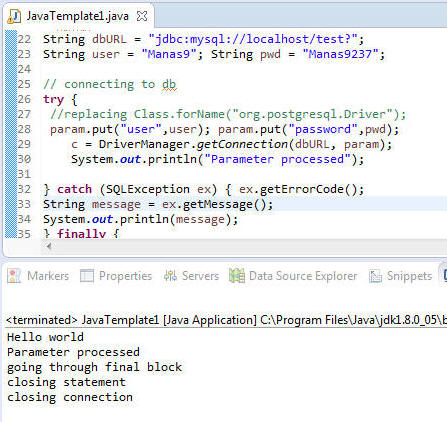- Objects :
Connection c = null; Statement st = null;
Properties param = new Properties(); - Connect DB : One string connects db with users name and pwd
c = DriverManager
.getConnection("jdbc:postgresql://localhost:5432/postgres",
"postgres", "postgre_manas9");
OR
c = DriverManager.getConnection("jdbc:mysql://localhost:5432/test?","Manas9", "Manas9237"); - Properties: user and pwd are tendered by
variables/literals
param.put("user",user); param.put("password",pwd);
c = DriverManager.getConnection(dbURL,param);
To avoid hard coding all the database parameters in the code, you can use a Java properties file to store them. In case of changes, you just need to change them in the properties file and you donít have to recompile the code.


Try and catch block:

package manas.com;
import java.io.*;
import java.sql.Connection;
import java.sql.DriverManager;
import java.sql.ResultSet;
import java.sql.SQLException;
import java.sql.Statement;
import java.util.logging.Level;
import java.util.logging.Logger;
import java.util.Properties;
public class JavaTemplate1 {
public static void main(String[] args) {
// TODO Auto-generated method stub
System.out.println("Hello world");
Connection c = null; Statement st = null;
Properties param = new Properties();
//postgresql
//String dbURL = "jdbc:postgresql://localhost:5432/postgres";
//String user = "postgres"; String pwd = "postgre_manas9";
//mysql
String dbURL = "jdbc:mysql://localhost/test?";
String user = "Manas9"; String pwd = "Manas9237";
// connecting to db
try {
//replacing Class.forName("org.postgresql.Driver");
param.put("user",user); param.put("password",pwd);
c = DriverManager.getConnection(dbURL, param);
System.out.println("Parameter processed");
} catch (SQLException ex) { ex.getErrorCode();
String message = ex.getMessage();
System.out.println(message);
} finally {
System.out.println("going through final block");
try {
if (st== null || st.isClosed()) {
System.out.println("closing statement");
} else {
st.close();
}
if (c != null && !c.isClosed()) {
c.close();
System.out.println("closing connection");
}
} catch (SQLException ex) { ex.getErrorCode();
ex.getMessage();
}
}
//System.out.println("Connected to database successfully");
}
}
